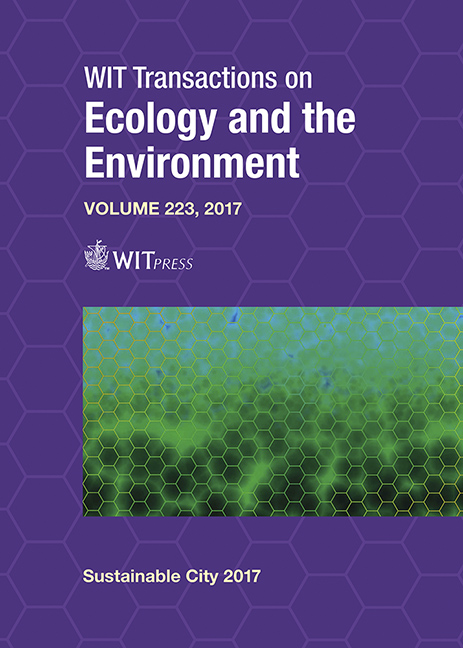URBAN ROADS AND SOCIAL METABOLISM: A SUSTAINABLE DEVELOPMENT STRATEGY FOR SAN JUAN, PUERTO RICO
Price
Free (open access)
Transaction
Volume
223
Pages
12
Page Range
27 - 38
Published
2017
Size
1,049 kb
Paper DOI
10.2495/SC170031
Copyright
WIT Press
Author(s)
MARÍA HELENA LUENGO DE ARREAZA
Abstract
The present work explores the relationship between an urban road with both, socio-metabolic processes and natural systems patterns. The premise is that roads have a decisive impact on energy, material flows and connectivity between biological structures. Therefore, urban metabolism - Social and natural processes measured out of energy use, material flows and land use - becomes the appropriate instrument to assess and analyze the functionality of the different components operating in artificial and natural systems. The case study traces the metabolic behaviors that result from the cross of Juan Ponce de León Avenue through the water system composed by the estuary of Martin Peña and Río Piedras River. A theoretical framework based on social equity, economy, and ecology is being applied in data collection and analysis. Parametric methodologies and GIS information are used to describe the structural and functional properties of both natural and urban systems. The collected data enable the understanding that the simultaneous loss of energy efficiency and land-use efficiency from the mid-20th century to the present affects the resilience of the area. Consequently, this exploration demonstrates the importance of urban metabolism in maintaining the ecological quality of natural systems. As a result, it proposes an urban metabolism strategy to develop more sustainable urban schemes for the systems composed of urban roads and natural ecosystems. The organized complexity of the water system, necessary to host biodiversity and fundamental ecological processes, cannot be guaranteed if the urban metabolism is not taken into account.
Keywords
urban metabolism, urban roads, resilience, urban sustainability





